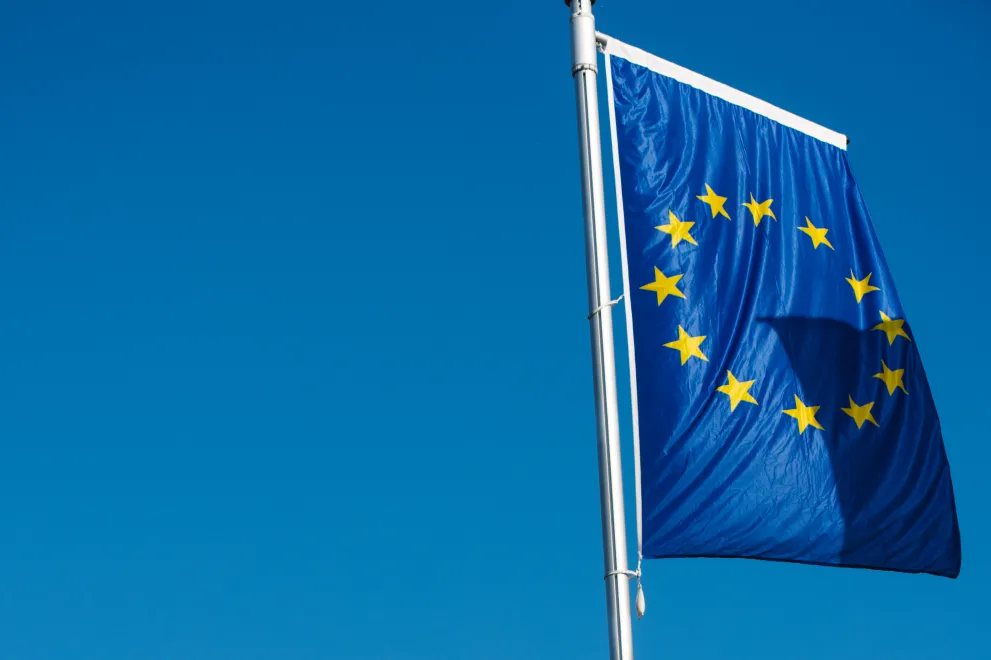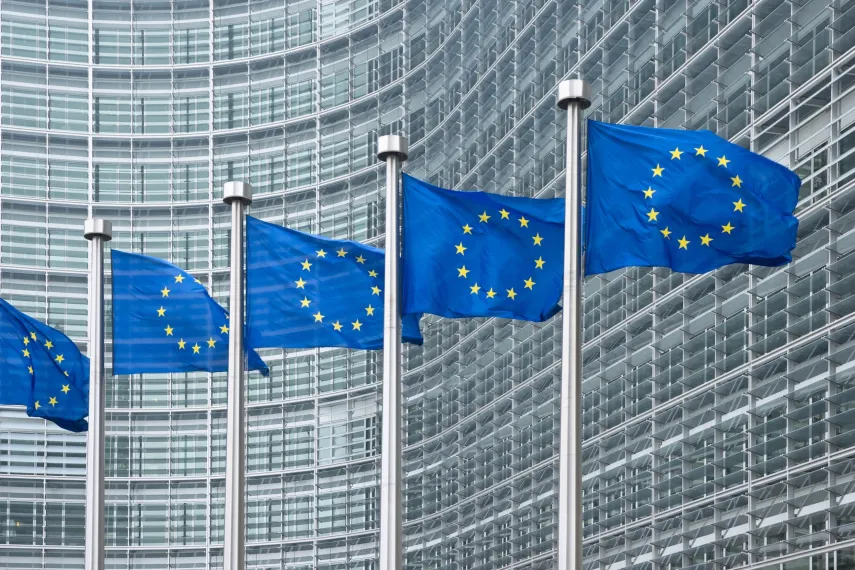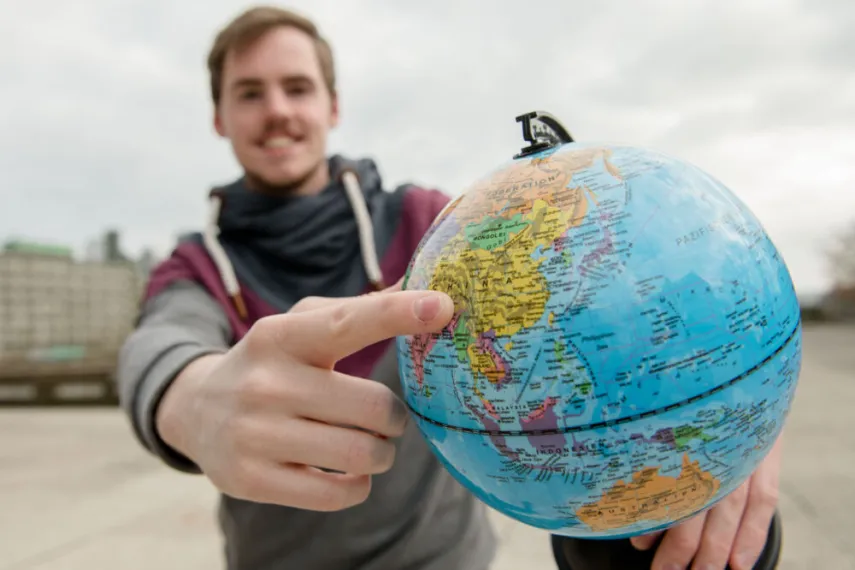
Application
International Funding Bodies
Horizon Europe: European Research and innovation funding programme until 2027
In 2021, the European Union's new framework programme for research and innovation "Horizon Europe" has been launched. It replaces its predecessor Horizon2020. About 95 billion Euros funding are earmarked for research and innovation funding between 2021 and 2027. Horizon Europe funds individual and consortia research in all scientific fields, scientists can work as scientific experts for European Commission.
Background
The overall content of Horizon Europe derives from the strategic objectives of EU policy. The political background is an important factor for research funding within the EU and need to be considered while preparing a proposal.
Horizon Europe programme structure
The EU Framework Programme is based on three pillars. These are "Scientific Excellence", “Global Challenges and European Industrial Competitiveness” and "Innovative Europe".
Pillar I: Excellent Science
ERC (European Research Council)
ERC is part of the pillar “Excellent Science” in Horizon Europe and serves to support excellent frontier research. Funding within ERC was for the first time integrated in the 7th Framework Programme and has since become the most respectable price for individual research Europe. Its only evaluation criterion is scientific excellence.
- Starting Grants | for young researchers within 2 to 7 years of experience after PhD;
- Consolidator Grants | for researchers within 7 to 12 years of experience after PhD;
- Advanced Grants | for excellent researchers who have been able to demonstrate outstanding research achievements in the last 10 years;
- Synergy Grants | for groups of 2 to 4 researchers and their teams;
- Proof of Concept | additional funding for researchers who have already obtained an ERC grant.
More information on ERC you can find on the website of the EU-office of the Federal Ministry of Education and Research (BMBF), on the website of the National Contact Point ERC, as well as on the website of the European Commission on ERC.
MSCA: Marie-Skłodowska-Curie-Actions
MSCA is the European Union's flagship scholarship programme for mobility in research. The programme includes the following funding opportunities:
- Doctoral Networks (MSCA-DN): funding of cooperation and knowledge transfer between institutions, sectors and disciplines;
- Postdoctoral Fellowships (MSCA-PF): an offer for experienced researchers who would like to gain research experience abroad;
- Staff Exchanges (MSCA-SE): funds short-term staff exchanges between academic and industrial organizations worldwide;
- COFUND (MSCA-COFUND): additional financial support for research training and career development programmes;
- MSCA and Citizens (MSCA-CITIZENS): supports activities or events that raise public awareness of the positive role of research in society.
More Information you can access at the website of the National Contact Point MSCA and on the official website of MSCA.
Research Infrastructures
Research Infrastructures is part of the Excellent Science pillar and plays an important role in the development of the European Research Area (ERA).
Essentially, the following objectives are set in this programme area:
- development of world-class infrastructures for sustainable research and innovation in Europe;
- further consolidation of the research and innovation ecosystem;
- better coordination of the design and development of research infrastructures.
All calls for Funding and further information you will get via Funding and Tenders Portal.
Background information on Research Infrastructures | European Commission (europa.eu).
Pillar II Global Challenges
Six thematic clusters serve as background for collaborative research projects:
- 1. Health;
- 2. Culture, creativity and inclusive society;
- 3. Civil security for society;
- 4. Digitalization, industry and space;
- 5. Climate, energy and mobility;
- 6. Food, bioeconomy, natural resources, agriculture and environment.
Every two years work programmes for six clusters will be published in the Funding and Tenders Portal and contain annual calls with specific topics which are also published in the portal. Consortia within Horizon Europe are research- and / or innovation projects or coordination and support actions, which include least three legal entities from three different member or associated states.
There are two main types of collaborative research projects: Research and Innovation Actions (RIA), Innovation Actions (IA). Here you will find the standard application form for RIA and IA research projects.
National Contact Points (NCP) give you further information on specific funding opportunities in Horizon Europe.
The Joint Research Centre of the European Commission (JRC) is also anchored under the Pillar 3 and conducts research on behalf of the European Commission in order to support European policies with independent evidence.
Partnerships in Horizon Europe
The Strategic Plan defines the role of co-financed co-programmed and institutionalized partnerships. The partnerships will cover critical areas for sustainability of the EU such as energy, transport, biodiversity, health, nutrition and circularity.
European Partnerships are alliances represented by the European Commission, private and/or public partners.
There are three types of partnerships:
- Co-programmed European Partnerships between the European Commission and private and/or public partners;
- Co-funded European Partnerships between EU member states, research funders and other public institutions;
- Institutionalised European Partnerships in the field of research and innovation between the Union, EU member states and/or industry.
Candidates for European partnerships with the most likely form and envisaged time of implementation in Horizon Europe, information about European Partnerships in Horizon 2020 (which partially still exist and offer research funding) as well as future and ongoing calls for proposals you can find on the ERA Learn website.
More Information: European Partnerships in Horizon Europe | European Commission (europa.eu)
Pillar III: Innovative Europe
EIC: European Innovation Council
The EIC brings together the most important EU instruments to identify and support breakthrough technologies and to support innovative oriented projects and technology research. First calls for proposals were published within Horizon 2020 as part of an EIC pilot phase.
Horizon Europe has three types of complementary EIC funding opportunities:
- EIC Pathfinder (Open/Challenge)
for excellence-oriented, high risk projects at an early stage of development with the aim of opening up new fields of science and technology; - EIC Transition (Open/Challenge)
for the validation of technologies and creation of business plans; - EIC Accelerator (Open/Challenge)
for individual start-ups and SMEs to develop and scale up game changing innovations; - In addition, there are the EIC awards, which support the development of novel and ground-breaking solutions to global challenges.
More Information on EIC funding opportunities: European Innovation Council (europa.eu)
EIE: European Innovation Ecosystems
EIE was established to create synergies between the European Innovation Council European Innovation Council (EIC) and the European Institute of Innovation and Technology (EIT). EIE aims to improve the entire ecosystem for innovation in Europe.
All calls for funding will be published in the Funding and Tenders Portal
More Information: European Innovation Ecosystems | European Commission (europa.eu)


